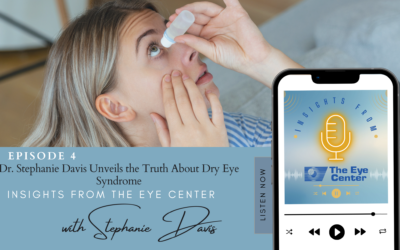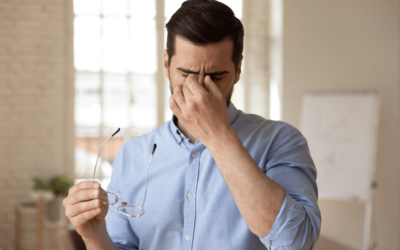Many people suffer from light sensitivity, a condition where bright lights hurt their eyes. The medical term for it is photophobia, and it can have different causes. While light sensitivity may seem like a minor issue, it can seriously impact your quality of life. In this blog post, we’ll explore common causes of light sensitivity and how to manage the symptoms.
Common causes of light sensitivity
1. Migraine
When you have a migraine, you may also notice sensitivity to light. This happens because the blood vessels in your brain become inflamed, causing abnormal brain activity that leads to migraine symptoms and light sensitivity. If you get migraines often, it’s important to talk to your doctor about identifying triggers and finding ways to prevent them.
2. Eye infections
Bacterial, viral, or fungal eye infections can make your eyes sensitive to light. They can also cause redness, pain, itching, discharge, and vision issues. Some common eye infections are conjunctivitis (pink eye), keratitis, and uveitis. These infections are typically treated with antibiotics or antiviral medications. If you notice any of these symptoms, you should see an eye doctor for treatment.
3. Corneal abrasion
A corneal abrasion occurs when you scratch the clear layer on the front of your eye, called the cornea. It can cause sensitivity to light, pain, redness, tearing, and blurred vision. Treatment options may include eye drops, antibiotics, or other medications.
4. Medications
Certain medications, like antibiotics or antidepressants, can make your eyes more sensitive to light. If you’ve recently started a new medication and you’re experiencing increased sensitivity, ask your doctor if the medication could be causing it.
5. Dry eye syndrome
Dry eye syndrome happens when your eyes don’t produce enough tears or produce poor-quality tears. Your eyes get irritated and inflamed, causing eye pain and sensitivity to light. Some other symptoms of dry eyes include redness, itching, burning, and blurry vision. In some cases, dry eye can even lead to eye infections, corneal damage, and vision problems.
Over-the-counter eye drops and lifestyle changes like taking breaks from screens and using a humidifier at home can provide some relief. But if these aren’t effective, you should schedule a visit at our dry eye center in Pembroke Pines, Florida. Our dry eye specialists are experienced in diagnosing dry eye and can recommend the best treatment options for both temporary and chronic dry eye.
In more severe cases, our eye doctor may suggest advanced treatments like tear duct plugs or prescription medications. OptiLight IPL (intense pulse light) therapy is another treatment option that targets dry eye caused by meibomian gland dysfunction. The meibomian glands are tiny glands in the eyelids that produce oil to keep the surface of your eyes moist. When these glands don’t produce enough oil or produce poor-quality oil, it affects our tears and causes dry eye. OptiLight uses pulses of light to warm and unclog these glands, allowing the oil to flow more freely and reducing dry eye symptoms.
Whether it’s migraines or dry eye syndrome, there are ways to reduce light sensitivity and protect your eyes from bright light. Our eye doctor can figure out what’s causing your light sensitivity and recommend the best treatment for you. If dry eye is the culprit, we’ll determine the underlying cause and provide personalized dry eye treatment to relieve discomfort. Give us a call today to schedule an appointment at our office in Pembroke Pines.





